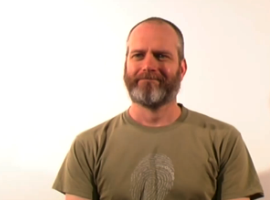InfoQ Homepage Language Design Content on InfoQ
-
Leah Hanson on the Julia Language, Static Analysis
Leah Hanson explains the characteristics of the Julia language, its type system, how to use and implement static analysis for the Julia language in the Julia language, and much more.

-
Andrew Sorensen on Real Time Programming, Live Coding Music, Memory Management
Andrew Sorensen explains live music coding with Extempore, the challenges of real time programming, garbage collection, static analysis to determine real time code meets its deadlines, hotswapping code, and much more.

-
Felix Klock II on Rust: Concurrency, GCs, Type System
Felix Klock II explains concepts of the Rust language: the concurrency model, the type system, allocation and ownership models, the macro system, its style of FP and OOP, and much more.

-
Interview with Barbara Liskov
Barbara Liskov keynoted at QCon London 2013 on the power of abstraction. Afterwards, InfoQ caught up with up with her to ask her about language design, modularity and distributed computation.
-
Erik Meijer discusses programming language design, effects and some web programming problems
Erik Meijer distinguishes between two kinds of programming languages, pure functional and all the others. He emphasizes some issues regarding mixing higher order programming with effects. Erik then talks about the nature of Javascript, and true problems we need to solve in web programming.

-
Rúnar Bjarnason on Scalaz, Lenses, Functional Programming and Scala
Rúnar Bjarnason talks about the ideas behind and features in the popular scalaz library, programming concepts like (bi-directional) lenses, Scala Macros, and much more.

-
Markus Völter on DSLs, Modeling, MPS, Mbeddr
Markus Völter explains the concepts of the MPS Language Workbench, how it enabled the mbeddr project, approaches to DSLs and how to combine them, programs vs models, formal verification, and more.

-
Mike Williams on the History of Erlang, Modeling and Large Scale Design
Mike Williams, co-creator of Erlang discusses the history of and influences on Erlang as well as languages and paradigms used at Ericsson for large scale development and embedded programming.

-
Simon Thompson and Huiquing Li on Refactoring in Functional Languages Like Haskell or Erlang
Simon Thompson and Huiqing Li explain refactoring with functional languages and Wrangler (Erlang) and HaRe (Haskell). Also: how Wrangler's ad-hoc mode allows everyone to write custom refactorings.

-
Kostis Sagonas on Erlang, Types, Static Analysis and Refactoring
Kostis Sagons talks about how type checking can help with a dynamic language like Erlang and how static analysis tools like Dialyzer or automated refactoring tools like Tidier help keep code clean.

-
Erlang Inventors Talk Language Future
In this interview Joe Armstrong and Robert Virding, co-inventors of the Erlang language, talk about the future of the language, including its use in web programming, its ability to scale and more. The duo also discuss Erlang support for NoSQL databases, running the language on the Java Virtual Machine (JVM) and comparisons with other languages such as Google’s Go.

-
Rob Pike on Google Go: Concurrency, Type System, Memory Management and GC
Rob Pike discusses Google Go: OOP programming without classes, Go interfaces, Concurrency with Goroutines and Channels, and the Go features that help keep GC pauses short.
